Justin Mott and his dog PanPan welcomes us in his home studio looking across the Red river. It is filled with natural light, photobooks and decorative cameras – a snug lair where he rests between field trips. “I haven’t slowed down”, he admits after a decade based in Vietnam, “in fact I’m traveling more than ever”. As a host of TV show Photo Face-Off and owner of photography blog AskMott, Justin is not a photographer who keeps his cards close to his chest. Following our questions that revolve around how to succeed in the industry, Justin goes on about being the worst photographer in a workshop, showing wedding works to a New York Times editor and the dark side of photography business that is not widely known.
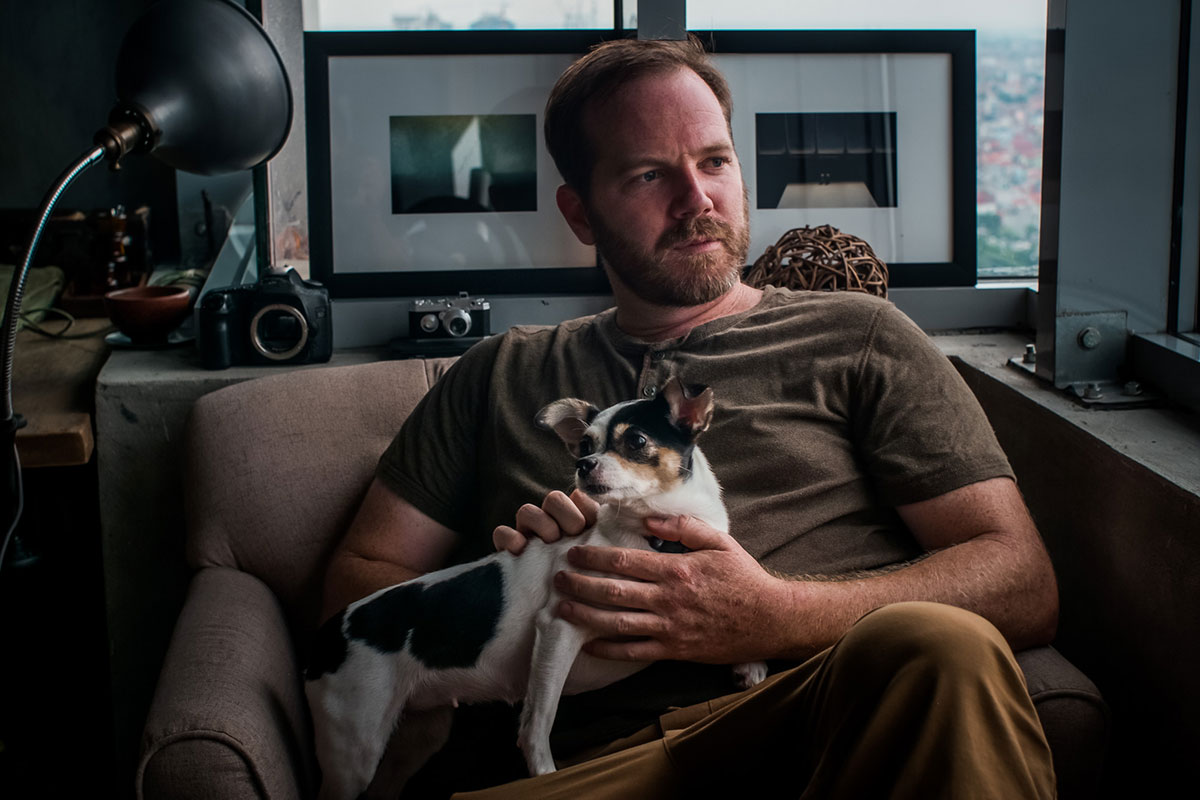
How would you describe yourself using three adjectives?
Gregarious…Gosh, I don’t know how to describe myself. Gregarious, silly, and industrious. And probably outgoing.
Although this is the first time we met, I have an impression that you are very talkative (both laughed). Does being outgoing help you in your photography career?
Yes I think so. Without having such personality I wouldn’t be doing a TV show about photography because I don’t look like I should be on TV. But I trust myself and am not afraid to try new things. It’s not a requirement if you just like shooting on the street for fun for example, but if you want to build a photography business, you will have to meet a lot of people, vocalize what your work is about, be able to close deals, among other things. So yes, being outgoing enables me to do many different things.
Will that put introverted people at a disadvantage when pursuing this profession then?
It depends on what you want to do. In documentary photography, maybe being an introvert is a good thing. Obviously you need to engage with others but that isn’t about being outgoing, it’s more about being compassionate and being human when you want to have access.
“It’s not about talent, I just work my butt off and build a plan and stick with it. For me it’s not about the gear or talent, it’s about ambition and motivation.”
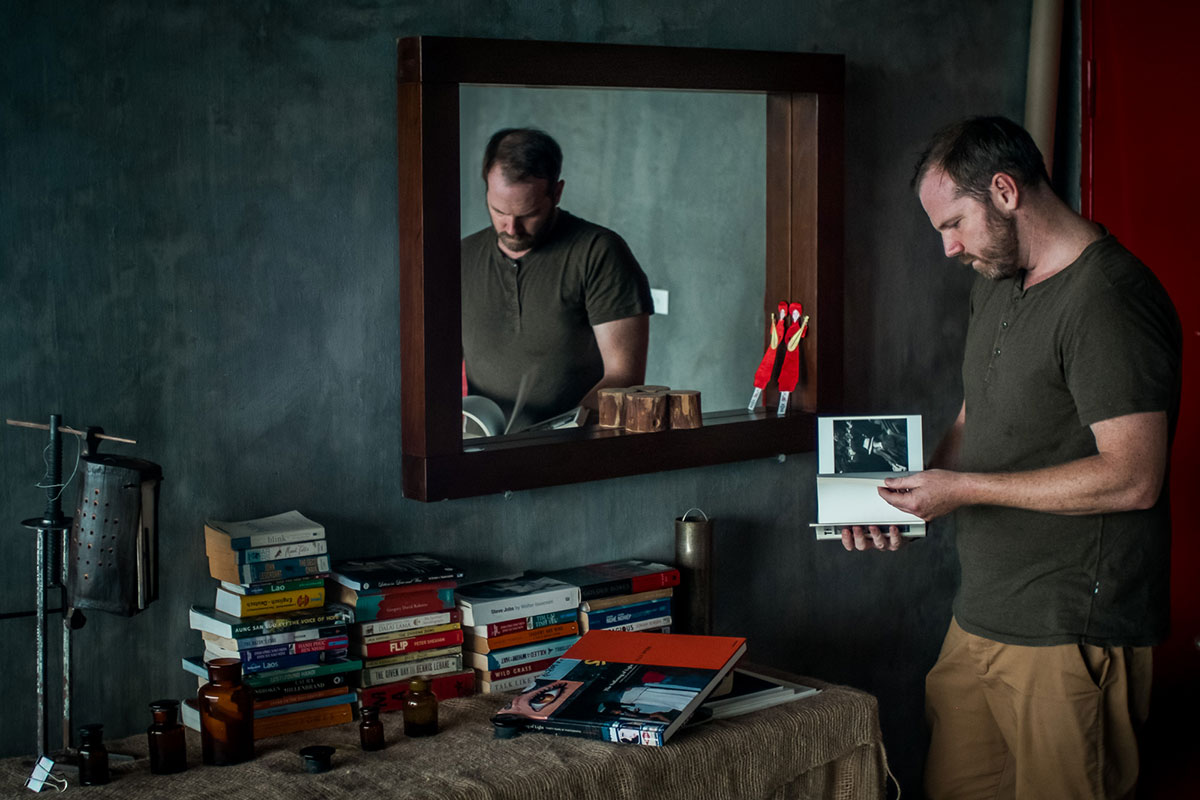
Photography is all about connecting with people, not just your subjects but also those in the industry. Any tips for effective communication?
Working with an assistant – first of all, an assistant has to understand and can anticipate the photographer’s needs. As a photographer, the more you can take off your shoulders in terms of the technical side and logistics, the more you can focus on getting the perfect shot as sometimes you only have 20 minutes to shoot a busy CEO. It’s important that you work with an assistant whom you trust, in return, you should make them comfortable to vocalize their opinions too because sometimes photographers can be scary, yelling at people and all that. I don’t want that relationship on the set with me.
Connect with editors – nowadays it’s different than what it used to be. When I just started out I just went to New York for two weeks on my own money, I hustled, met up with editors in person and showed them my work. Now it’s a global world, now you have to both contact editors in real life and also be persistent in getting your work out there on the Internet, which is tough because they see tons of work everyday.
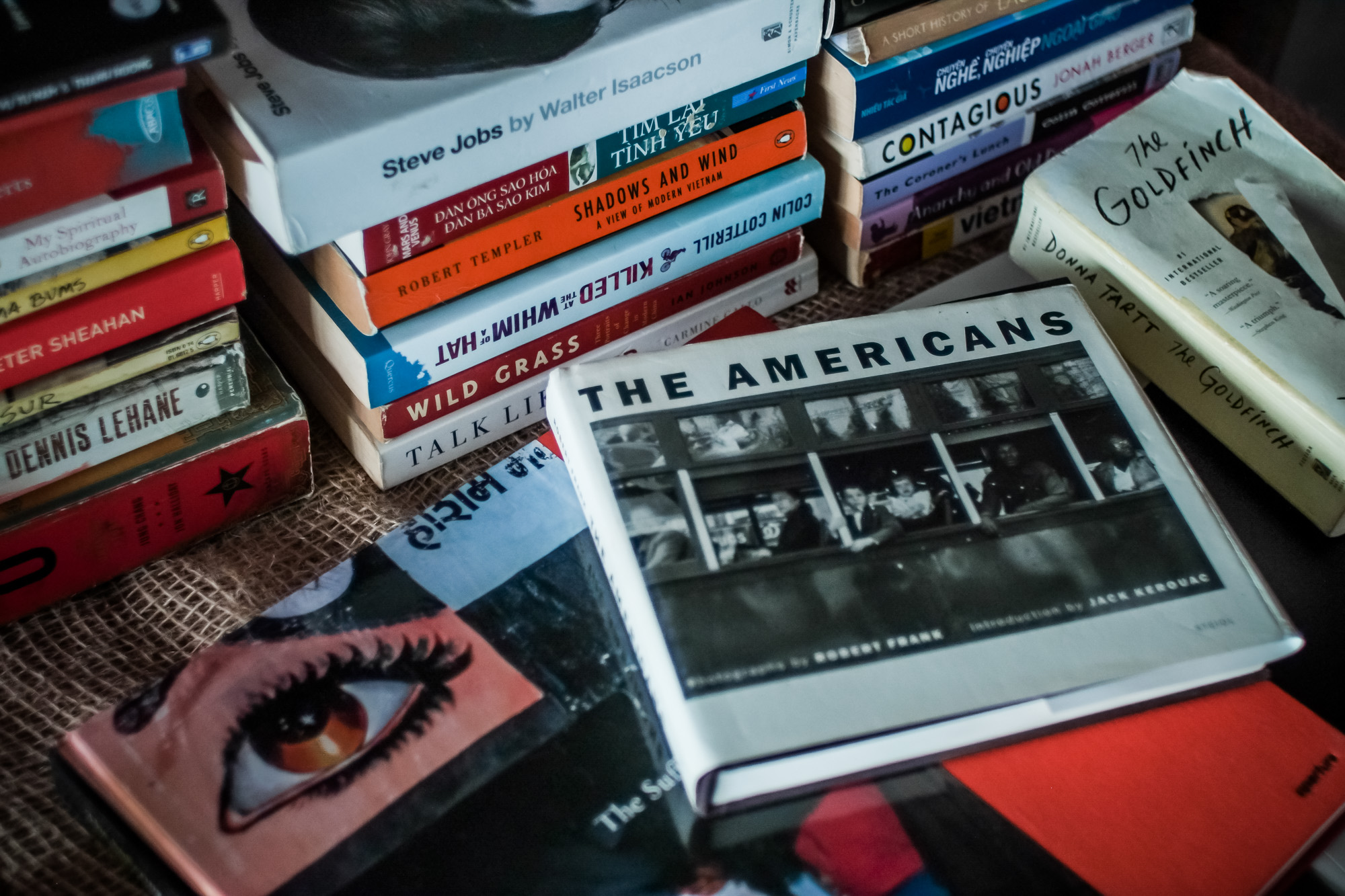
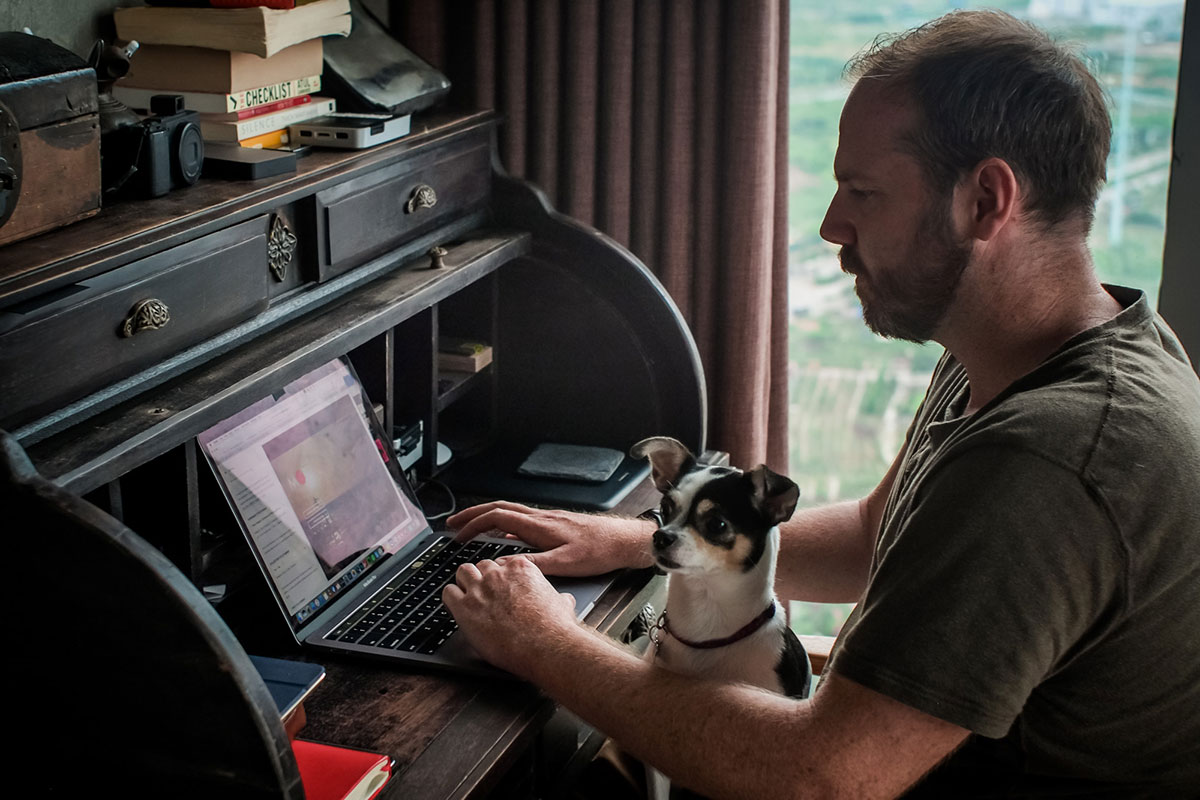
You once said in a previous interview that being versatile is also an important quality to succeed. Can you elaborate on that?
I’m not saying that every photographer has to shoot everything – shoot what you love because your passion will show up in the quality of your work.
I like to be versatile because each thing I’ve done makes me better at others. Documentary photography teaches me about storytelling, wedding trains me to work in quick situations, commercial photography makes me slow down and carefully plan what to put in a frame.
Photography can be fun but you have to think long term. For me being versatile is important because you never know which industry is gonna crash. Take car photography for example – car photographers used to make a ton of money but when the industry switched to CGI many went out of business. Also there will be a time when you can’t run around travelling as much. What’s your retirement plan with photography, or say, you get injured and can’t work for years? I have seen friends who got injured and had to rely on the photography community’s donation.
We have a wonderful community filled with caring people but it’s sad when someone crushed financially just because of a bad month or two.
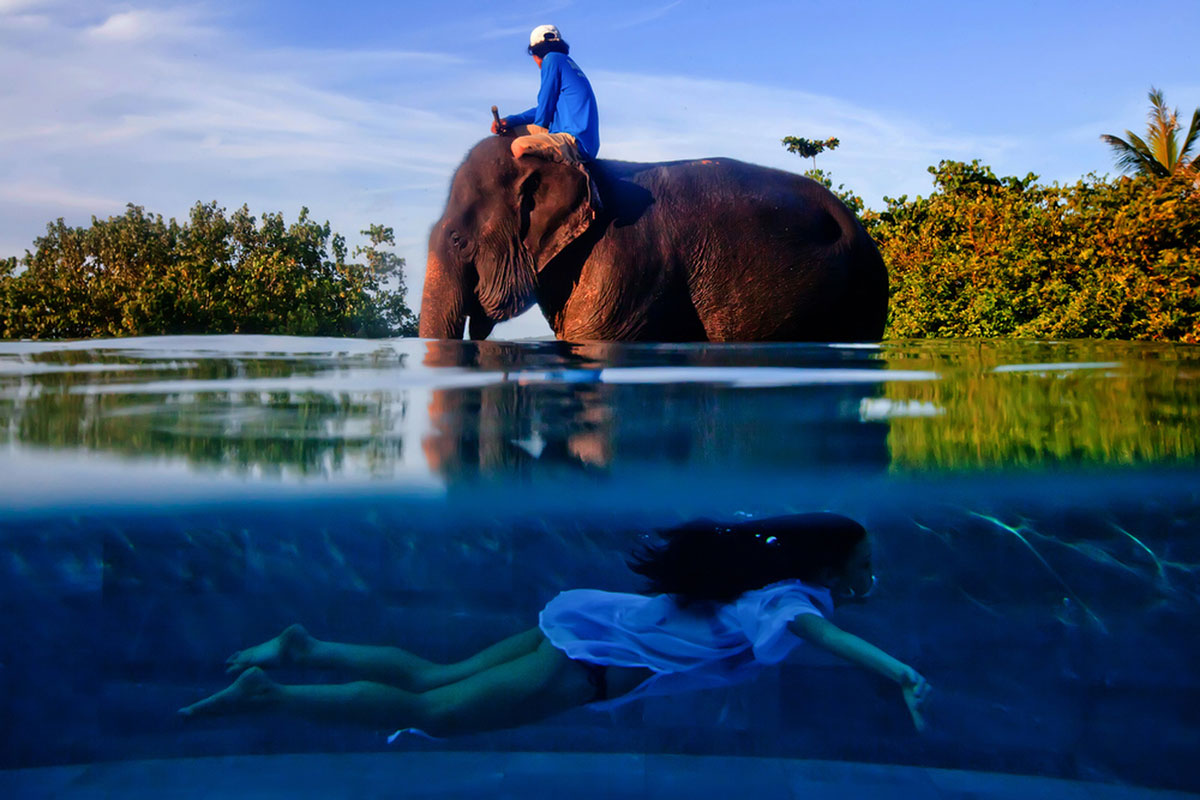
Not many photojournalists or art photographers do commercial work or even if they do, they often hide that because it might harm their reputation. What’s your take on that?
It’s a great question. From my experience, people who actually hire you don’t care, it’s more about the stigma among your peers. When I was in school, if you said you did wedding photography, people would say that you were a sellout who just did it for the money. I think commercial photography is looked down on among many documentary photographers but I’ve gotten to the point where I just don’t care what others think.
When I was young, I met a New York Times editor who asked me if I did any weddings. I showed her my wedding works, not knowing if it would backfire. She looked through them and say, if you can produce images like that under pressure of a one-time event, you can do anything. I was hired several months after that and was sent all over the world for assignments.
I put the same amount of effort into all my assignments as anybody else, and in my free time I want to make pictures to support other stories. Of course I have to switch headspace but I enjoy the challenges. I try to keep a core style, my background in documentary photography and adapt it to different genres of photography.
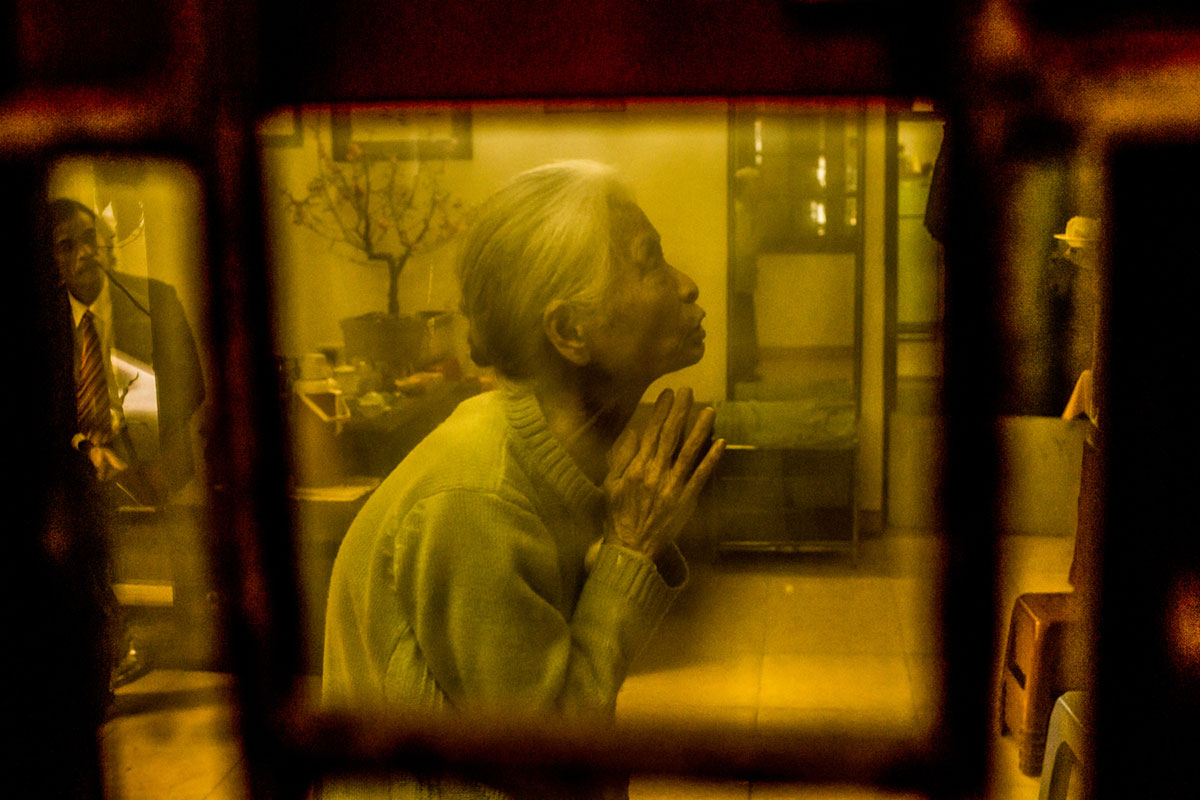
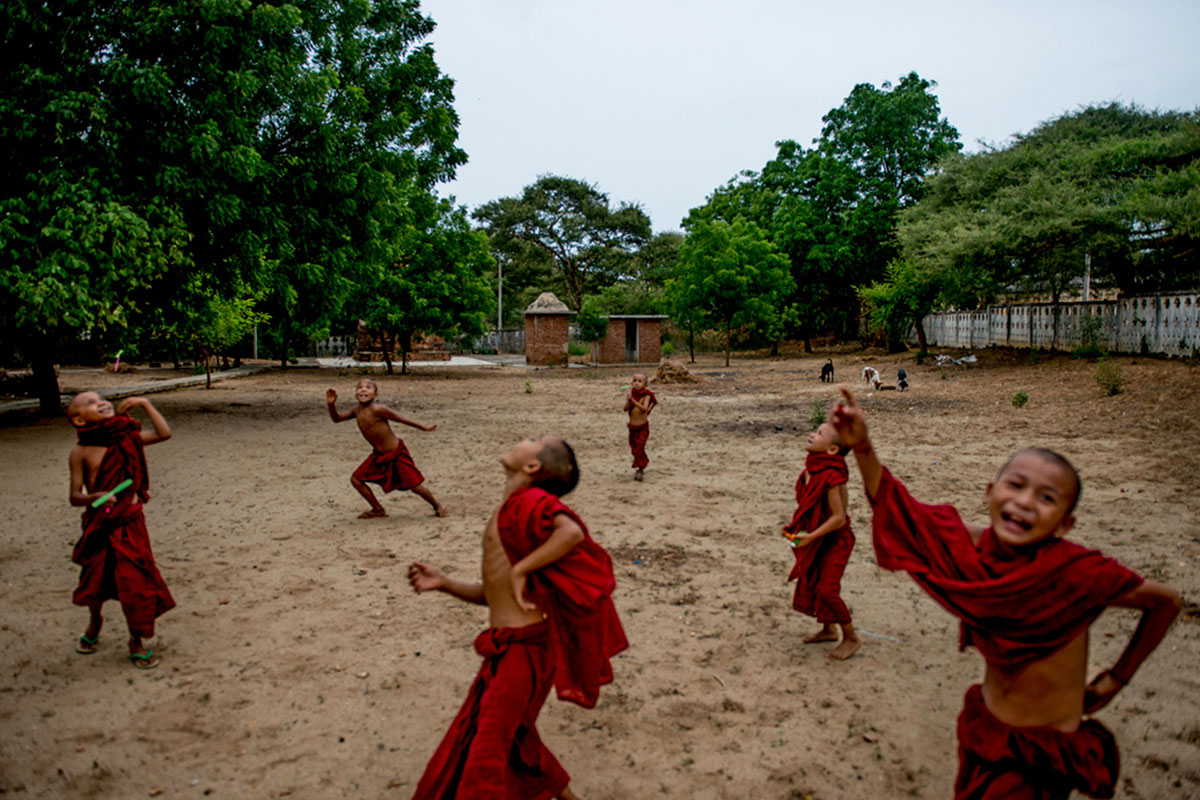
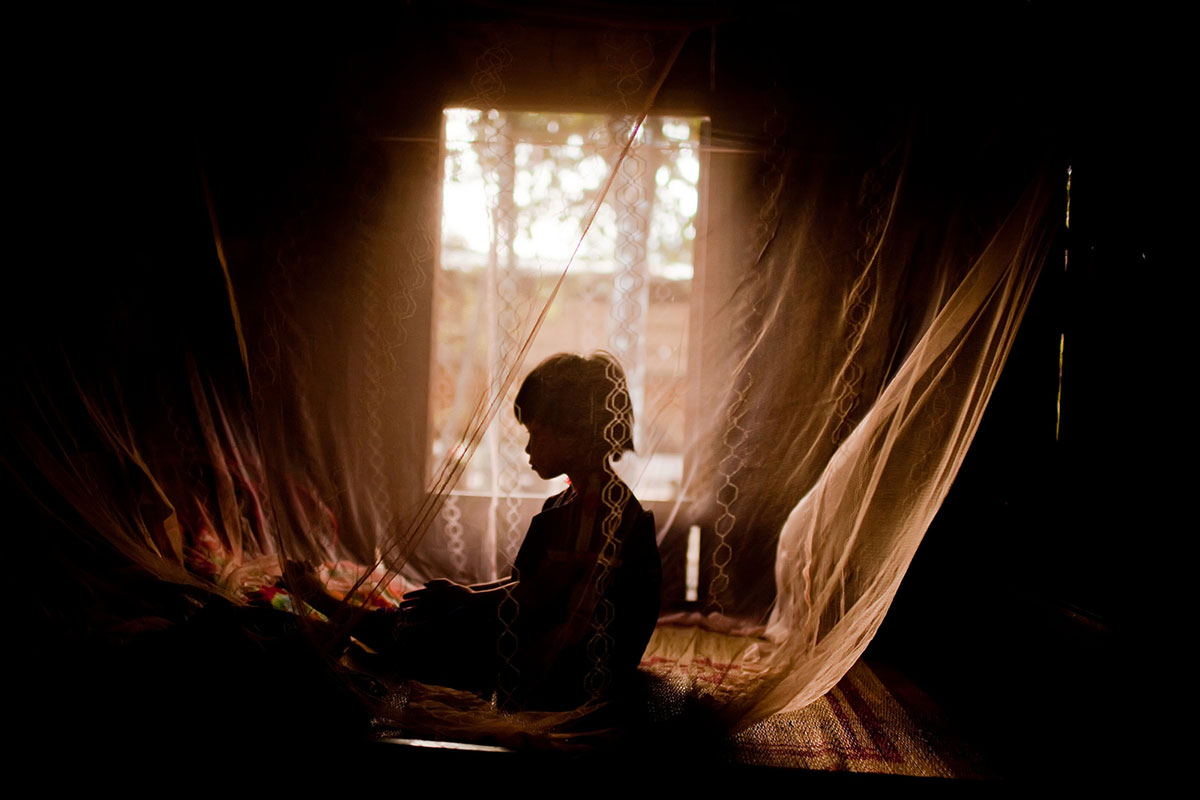
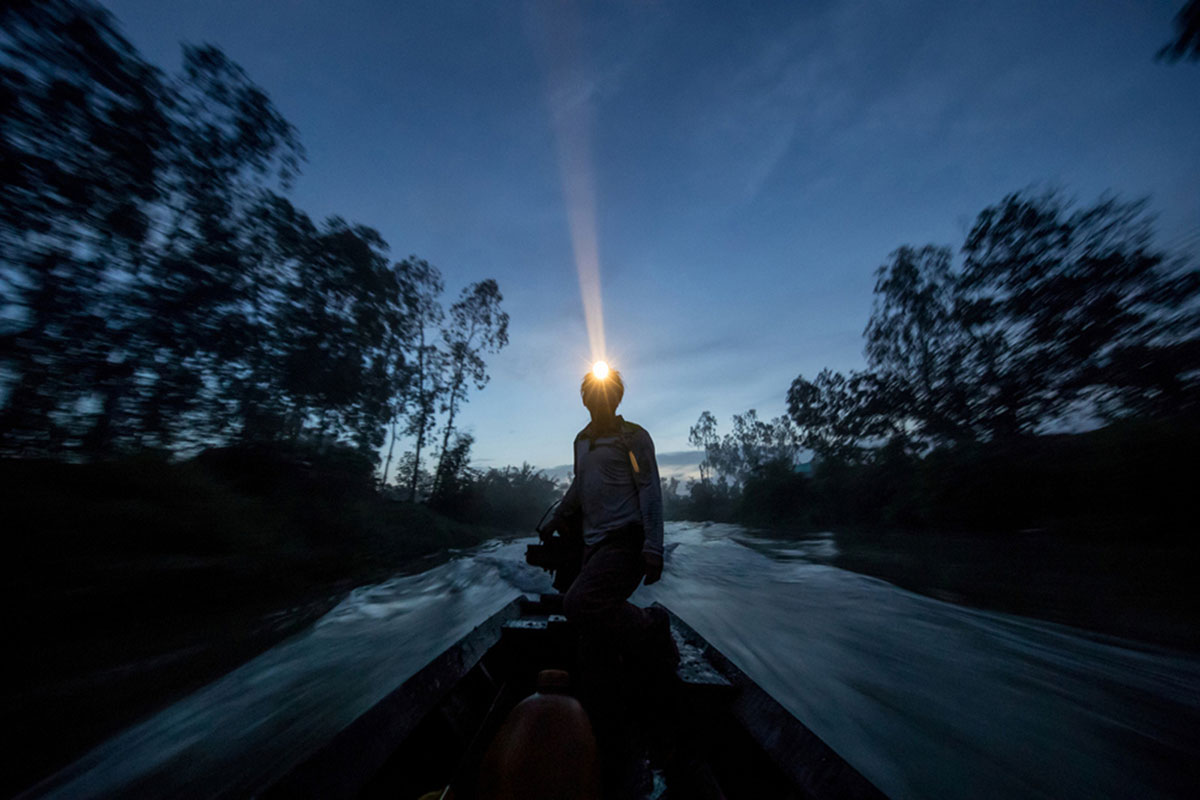
How do you strike a balance between taking photos for clients and for yourself? You recently announced your personal project “As Above, So Below”, it has been quite a long time since you last worked on one.
It’s been probably 10 years since I last worked on something this deep and this personal. It’s a tough balance because when you start out, it’s easy to focus on just getting paid work. I hustle and sometimes forget my roots in documentary photography and storytelling. I put so much effort into growing my business so now I can do As Above, So Below, though I wish I could have done it earlier. I decided that I would turn down some paid jobs so I can focus on it.
This project is to rediscover my style and try different things, because when you work nonstop, you end up shooting the same way, there’s no time for creativity. I owe a debt to this country so I do want to give back. This is a gift from me to Vietnam, the images will be available for free and unlimited use for personal and commercial purposes to the government and people of Vietnam. I don’t know if people accept it or not, we’ll see.
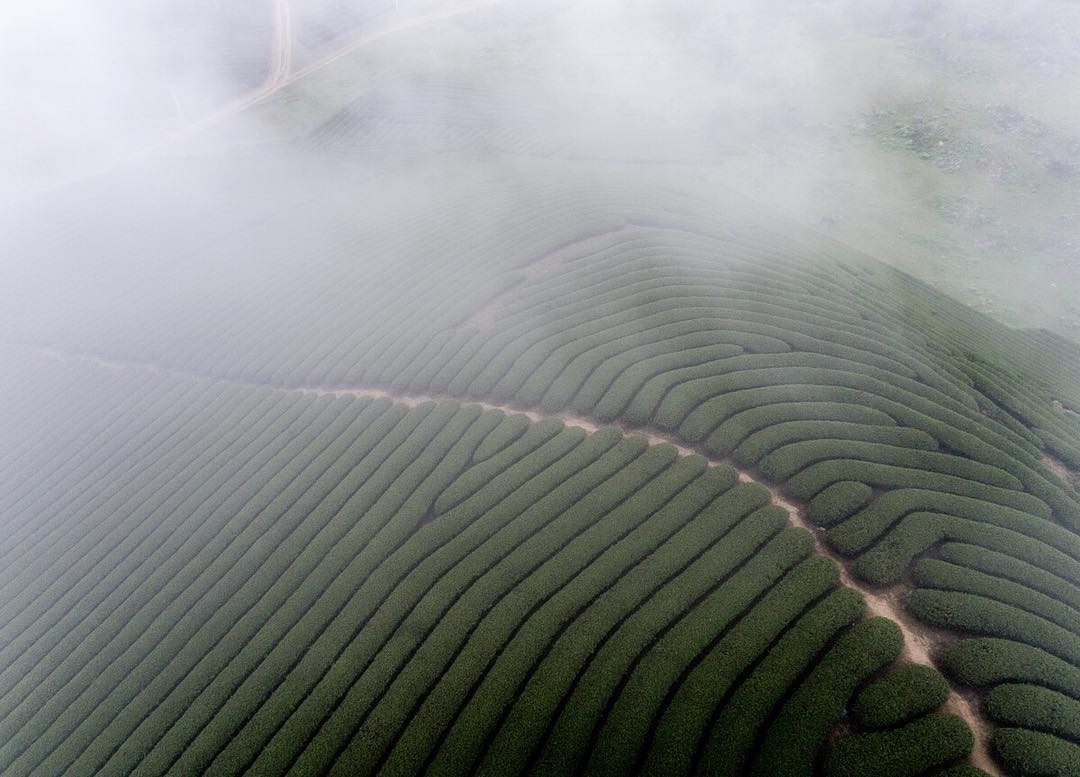
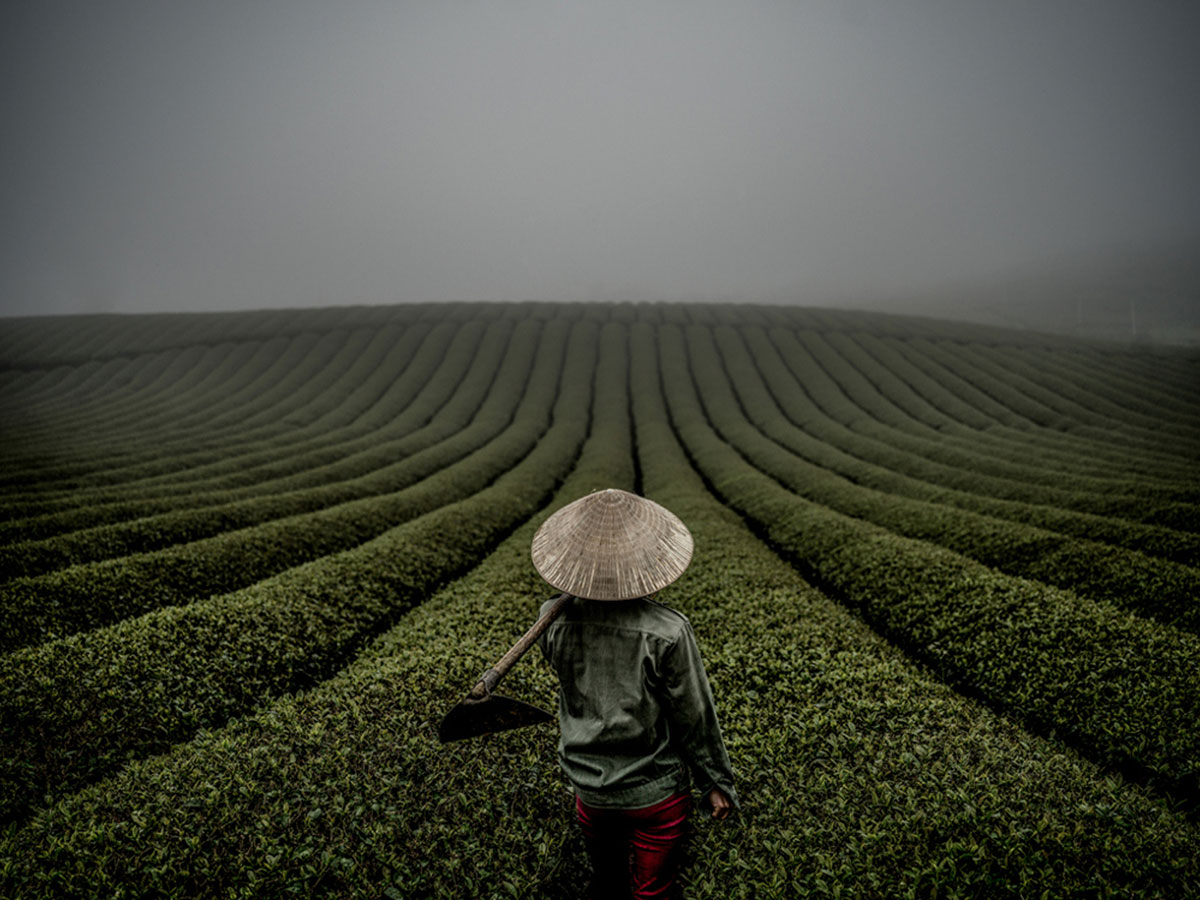
This is a boring question but I think many people care about such technicality: As a “versatile” photographer, how important is gear?
It’s case by case and only comes down to what you need depending on the job. Sometimes it’s a giant billboard that requires medium format, sometimes it’s for a magazine and there’s not much of a difference between a Canon amateur and a pro…I would suggest that you get what you can afford. And get good lenses because they keep their value well and don’t get updated nearly as much as cameras.
For a long time I shoot with a Canon 5D and a 35mm 1.4 because I like shooting in low light and traveling light, also a fixed lens forces me to move more. For As Above So Below I use a Hasselblad X1D Medium format that is quite a specialty, but I did it on purpose because I want gigantic prints. Another reason is that the camera is extremely slow, it takes a while to render so each shot is significant. I purchase things I know will work under different conditions. My Canon 1DX I will perform under extreme situations and my little mirrorless Ricoh is great for moving around for street photography.
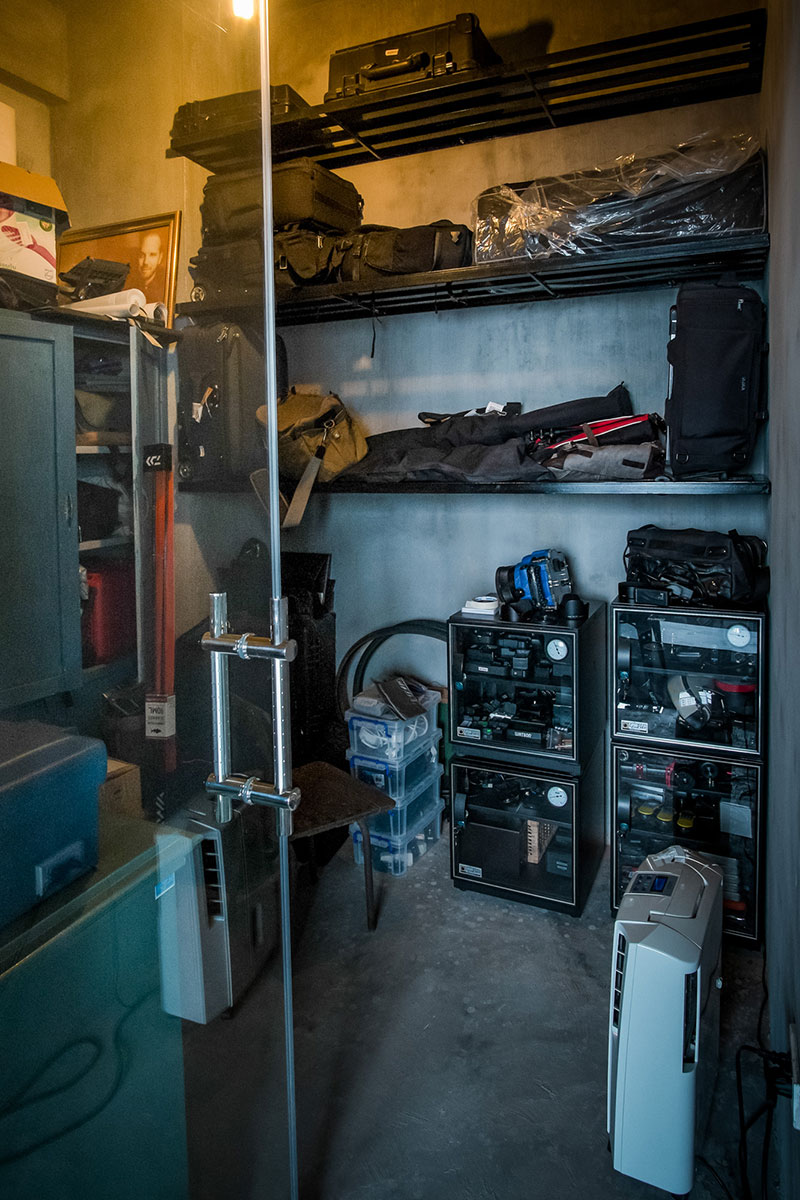
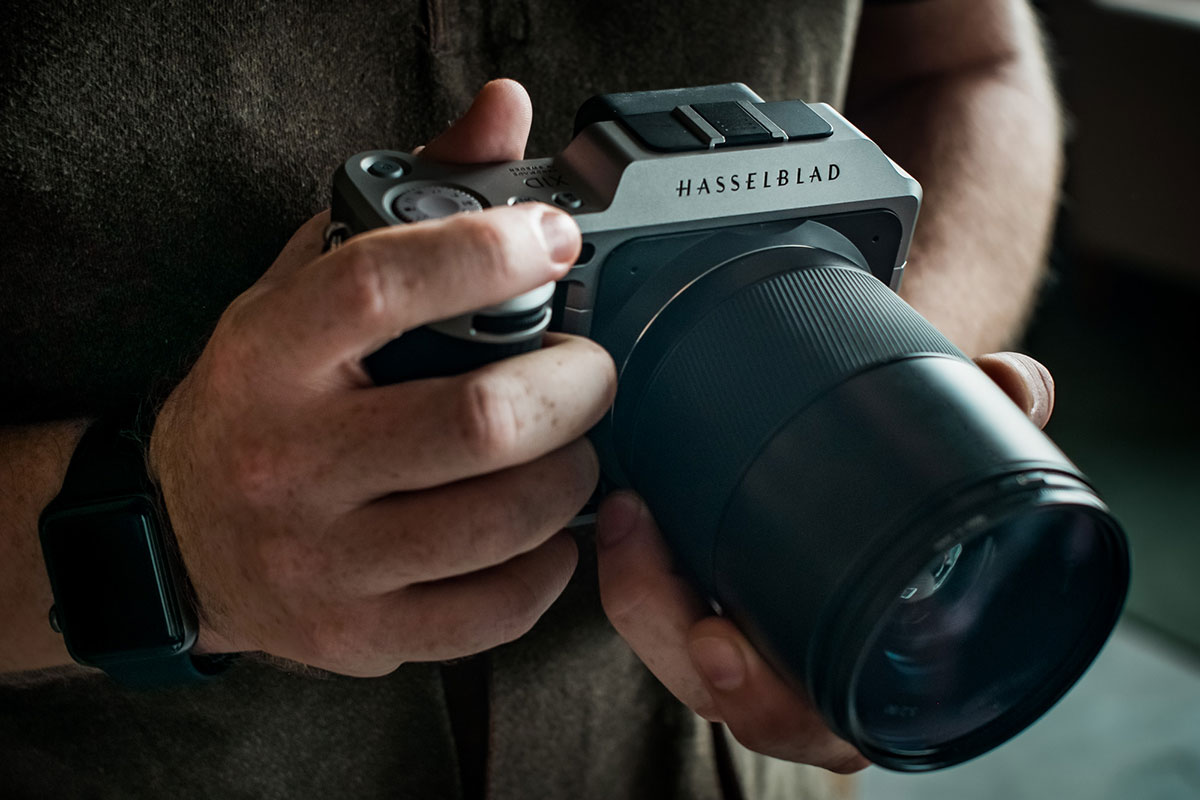
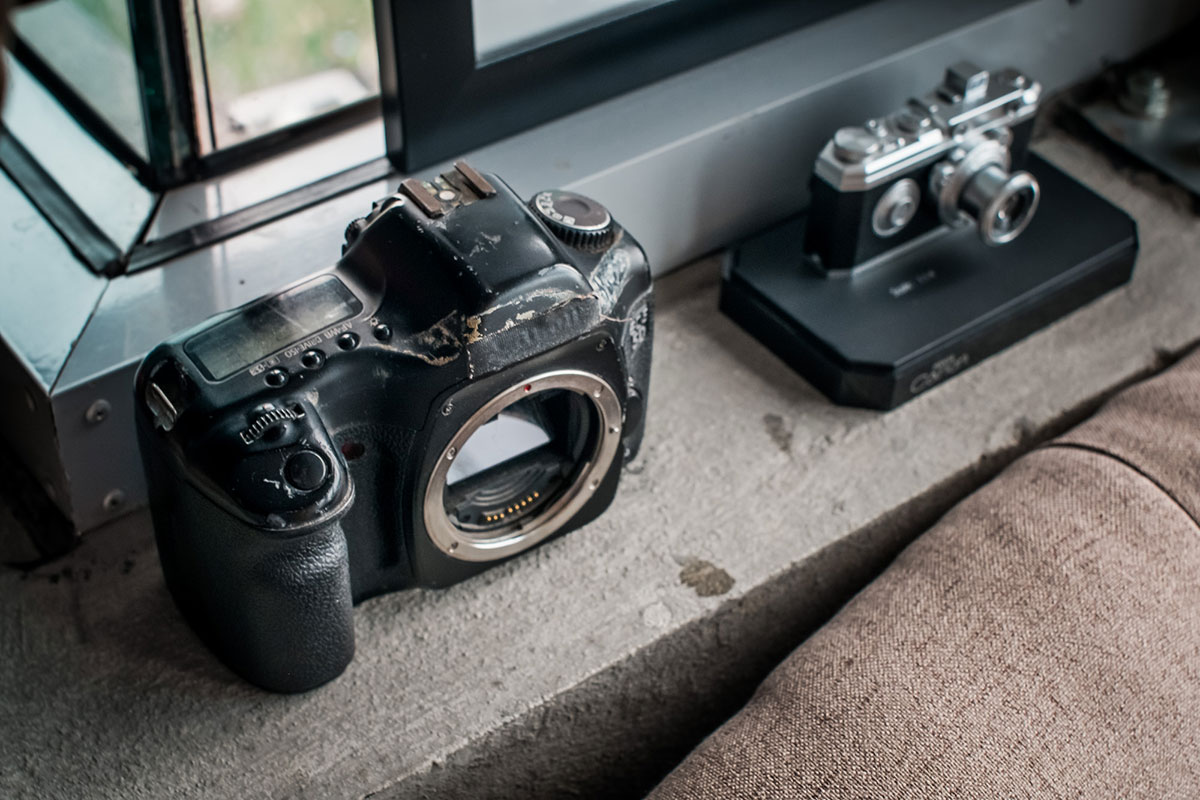
Can you show us your collection later then?
Of course. We have a whole room because we also do video production, the little closet looks not very photogenic though.
That said, having a good eye and a good discipline is much more important. Well, having a good eye is important but you can grow into it. I have told this story many times before, but I did a workshop in Cambodia 10 years ago, out of 10 photographers I was the worst. Now I’m the only one working as a professional photographer. It’s not about talent, I just work my butt off and build a plan and stick with it. For me it’s not about the gear or talent, it’s about ambition and motivation.
Do you want to answer any question that we should have asked?
Photographers should have a community where everyone can come together and share their experiences. I do it with my fellow wedding photographers, we exchange ideas on contracts and pricing. A lot of people say they don’t get paid until the job’s over, and it happened to me that clients would say they didn’t like the images to ask for a discount. I wish I knew things like we should only give a low-res copy or with watermarks to review, don’t give the final pictures until you receive full payment…when I was younger. The more knowledge is shared, the more photographers can be organized and get on the same page, then the industry can change for the better.
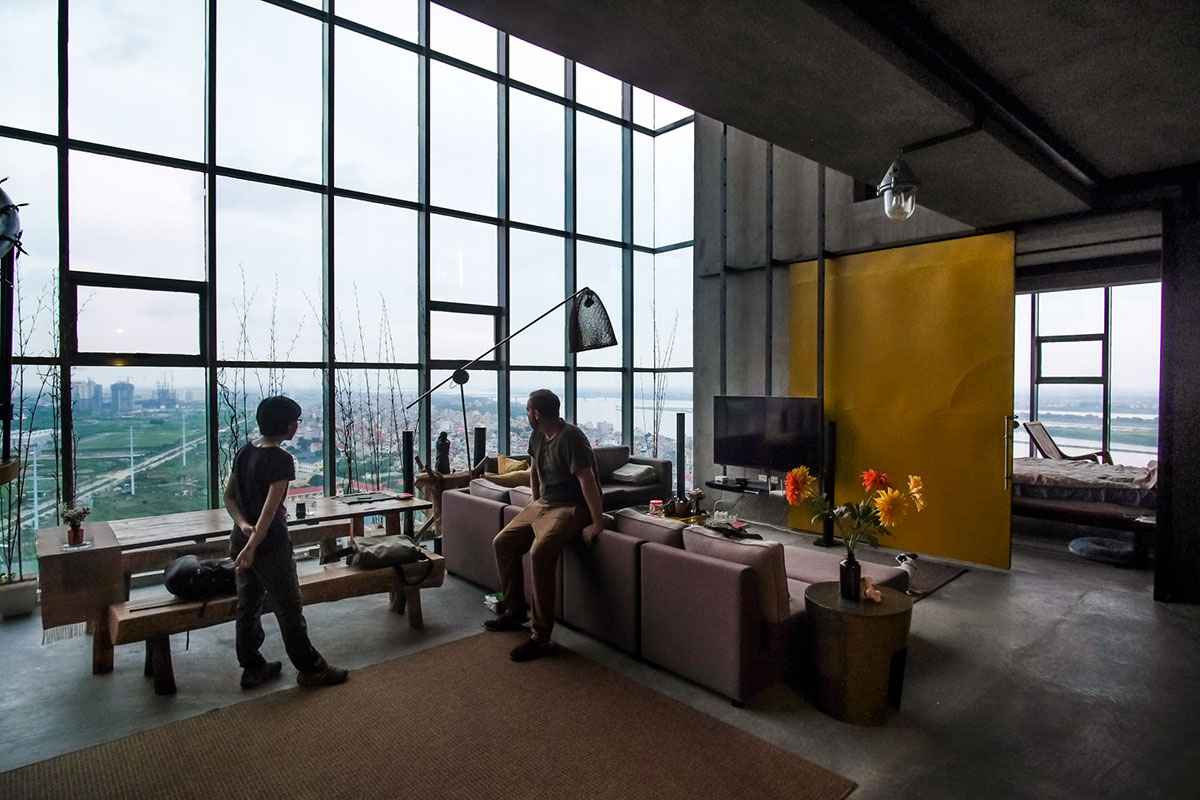
Justin Mott is an American photographer living in Vietnam since 2006. He has shot over 100 assignments for the New York Times and his major editorial clients include TIME, Forbes, The Wall Street Journal, and The Guardian among many others. His boutique visual production studio Mott Visuals specializes in premium commercial photography and video production. Mott is also familiar to TV viewers as host and resident judge of History Channel’s hit photography reality series Photo Face-Off now entering their 4th Season.
Connect with Justin Mott on his personal Instagram, As Above So Below Instagram and photography blog AskMott.
